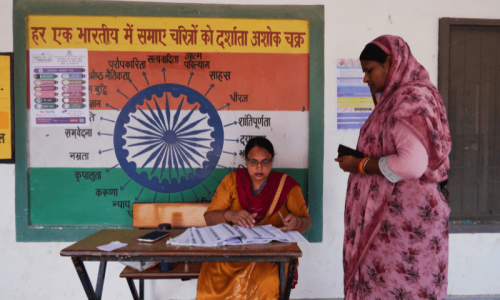RAWALPINDI, Aug 26: The 20kg bag of wheat flour to be sold at the subsidised rate of Rs300 during Ramazan will have a separate identity as the sack will be green in colour.
Officials in the Punjab food department told Dawn that the bag would also carry the provincial government’s seal, weight, price, date of milling, name of flour mill and the district where the commodity was packed.
The Punjab government will sell the wheat flour in the special packing at specific sale points and Sasta bazaars throughout the province.
The ‘Green Bag’ will help the authorities ensure that wheat flour is neither sold in the black market nor smuggled to unspecified locations.
Punjab Chief Minister Shahbaz Sharif announced the other day in Lahore that the provincial government would make arrangement to sell wheat flour at a special price (Rs300 per 20kg) for the benefit of poor segment of the society.
Without any doubt, it is customary that prices of essential commodities shoot up during Ramazan, while local administrations act merely as ‘spectators’ and fail to check hoarders and the elements involved in black marketing.
The administrations do have the system of special price magistrates but they are not very effective in a way that raids in the market are carried out randomly and not very frequently.
Moreover, shopkeepers, fruits and vegetable sellers and other vendors display the official price list but do not sell the commodities at the prescribed rate. On this count, special price magistrates are helpless. There is no mechanism for the public to register their complaints for overcharging by the shopkeepers.
The local market committee, which fixes the prices of fruits, vegetables, poultry, mutton and beef, is itself a major source of inflated prices. The committee members never visit the wholesale markets, and fix prices while sitting in the office considering the trends in the wholesale market.
Quite often, the rates fixed by the market committee do not correspond to the market situation. Moreover, the price list is distributed in the market in the afternoon, rendering it useless for a consumer.
People said the district administration in Rawalpindi had never taken any pain to review the operations of the local market committee.
Members of the committee are never accessible.
Even this correspondent made several attempts to reach the committee members but they were never available. Clerks rarely responding to telephone calls and when they do, they always had the readymade answer that “no one is available in the office”.
SUPPLY TO MILLS FROM TODAY: The Punjab food department is expected to start releasing wheat to flourmills in Rawalpindi and Islamabad from Wednesday, which will help alleviate the shortage of wheat flour in the twin cities and their adjoining areas.
As per the practice, the food department starts supplying wheat on permits to flourmills in September, however in view of the holy month of Ramazan, which is likely to start on September 2, the Punjab government has decided to start supplying wheat in late August.
Being wheat deficient areas of the Potohar region, Rawalpindi and Islamabad are the only cities where flourmills get wheat from the provincial department on permits.
The main reason attributed to this government control is the smuggling of wheat and wheat flour to Afghanistan. Likewise, flourmills of NWFP also get wheat on permit according to wheat flour requirements in the province.
District Food Controller, Rawalpindi, Rohail Butt expects to receive the Punjab government’s instructions in a day or two, and the Flour Mills Association’s vice-chairman, Abdur Rehman Khan, also says that the supply of wheat is likely to start from Wednesday.
About the new rate of wheat, Mr Khan said though the Punjab government was yet to announce the rate, it could be within the range of Rs660 and Rs675 per 40 kilogrammes.
There are at least 90 small and large flourmills in the twin cities, out of which only 86 are operational.
According to Mr Khan, these mills require a daily supply of 400 to 600 bags (100kg each) of wheat to ensure steady supply of wheat flour in the market.
The Punjab government has decided to sell a 20kg bag of wheat flour at Rs300 during the month of Ramazan. For this purpose, the food department will release wheat to flourmills by providing them with a subsidy of Rs60 to Rs70 on each 20kg bag.
According to the food controller, the special price of wheat flour is solely for the poor segments of the society. Subsidised flour would be sold during Ramazan through special sale points and ‘Sasta Bazaars’ to be set up by the district governments.













































Dear visitor, the comments section is undergoing an overhaul and will return soon.